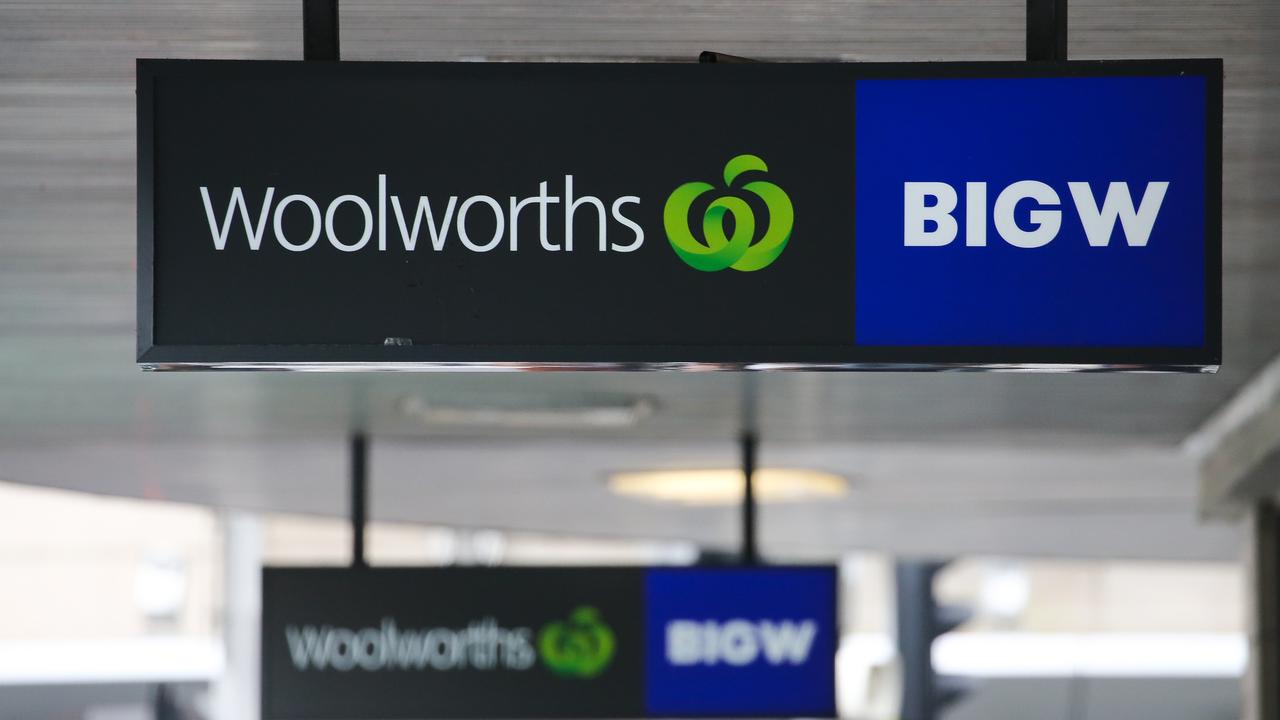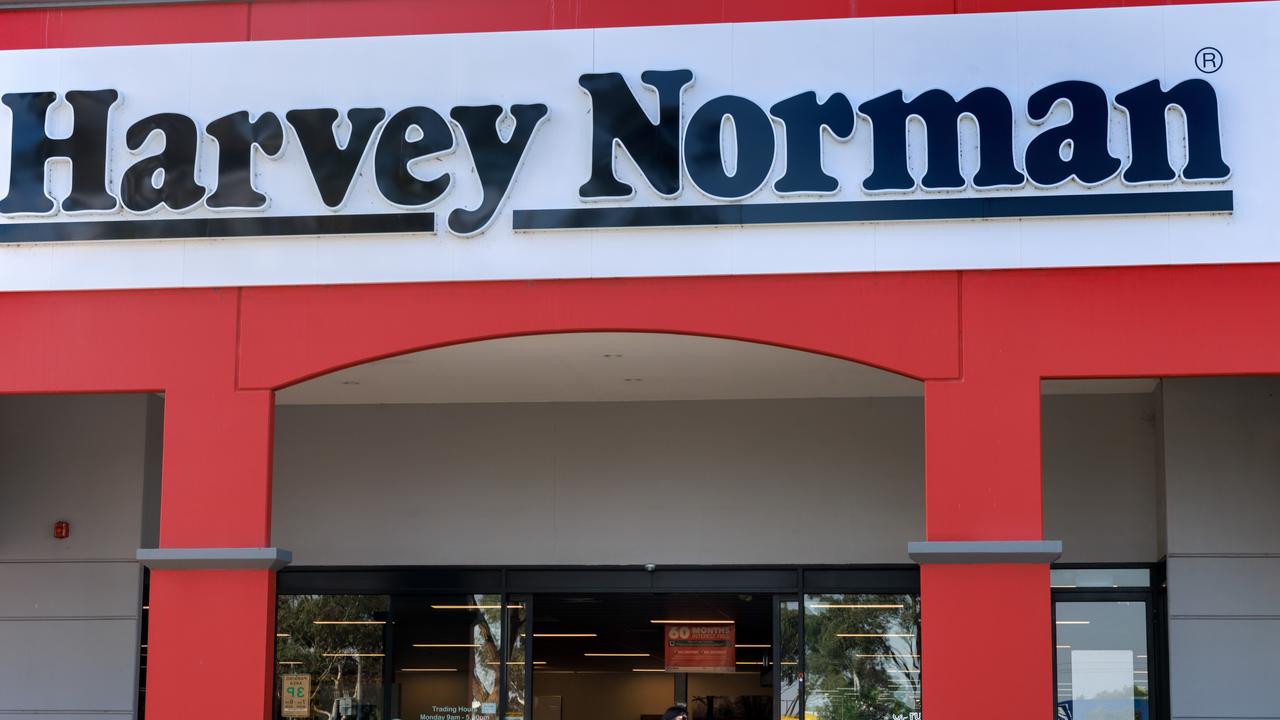‘Can’t change the past’: Retail Food Group boss on how he plans to save the scandal-plagued franchisor
The man tasked with rescuing the scandal-plagued owner of Michel’s Patisserie and Gloria Jean’s has spoken out for the first time.

EXCLUSIVE
Peter George may have the hardest job in the country right now.
As the new executive chairman of the scandal-plagued owner of franchises including Michel’s Patisserie and Gloria Jean’s, Mr George has the unenviable task of trying to save Retail Food Group.
To do so he must cut costs and sell off assets to keep the banks at bay, stare down lawsuits and investigations, overhaul poor-quality product ranges to boost sales and rebuild fractured relationships with franchisees.
The embattled Gold Coast franchisor has lurched from scandal to scandal over the past two years, during which its share price has collapsed from $4.40 to 13.5 cents, wiping $780 million from the company’s market capitalisation.
Once, RFG had a market cap of more than $1 billion.
Former franchisees have told harrowing stories of losing everything after their businesses went under, but Mr George — a specialist in restructuring struggling companies like Optus and Asciano — says he “can’t change the past”.
“All I can do is deal with what I’ve got,” he told news.com.au in his first interview since taking over in December last year. “I’m mortified that anyone lost considerable amounts of money. I feel for anybody who’s lost money.”
For the past six months, Mr George has been “feverishly” working to fix things for the group’s remaining franchisees and shareholders. “We feel the pain and my heart is set on making this happen,” he said.
“I took this job on because I think this company can and should be given a chance to turn around. Over 1000 small businesses and 7000 employees depend on us getting this right.”
One of the first things Mr George did was sack around 80 per cent of RFG’s senior management — 200 people in total. “We’ve changed the culture,” he said.
“Being part of the system that wasn’t working, it’s very hard to suddenly get the message and do things differently to make it work. Everything from remuneration, hiring criteria and promotion prospects are now linked to this customer-first ethos.”
Mr George says he has spoken to more than 200 franchisees already, with those discussions forming the basis for his turnaround strategy.
“We walked into sometimes a fairly hostile environment and left those meetings with a much more upbeat feeling,” he said.

“A very large percentage of them are very supportive. I think a lot of the reporting is not reflective of the 85 per cent of franchisees that are making profits. We will continue to provide direct financial support to the small percentage of franchisees struggling financially.”
The key initiatives being rolled out include “more and better products”, increased marketing support, reduced pricing for key products — including a 15 per cent reduction in coffee — and assistance in rental negotiations with landlords.
Fresh cakes are also coming back to Michel’s Patisserie.
Franchisees pinpointed the move to pre-made frozen cakes in 2015 as the start of many of the issues. “That’s rolling out now in NSW and Victoria,” Mr George said.
“That’s been very well received, but some franchisees have asked that some of the frozen cake range remains available to them — so it’s not a simple matter of fresh versus frozen. One of the reasons frozen was taken up was the logistical difficulty of getting fresh products to such a wide network.”
A 12-month marketing pipeline of 62 new product launches has shown early success, according to Mr George, driving incremental sales rates of $2 million.
If that success is replicated across the rest of the rollout “we’re looking at somewhere in the order of $30 million of profitability back into the network, which will result in less franchise partners running into financial difficulty”.
RFG reported a $111.1 million half-year loss in February, up from $87.8 million in the prior corresponding period, noting the “the group’s current financial position is unsustainable”.
It unsuccessfully attempted to sell off its Donut King, Crust Pizza and Pizza Capers brands in a bid to reduce some of its $260 million in debt due at the end of October.
Mr George said RFG was now in “advanced discussions” on a range of debt-reduction strategies, including the sale of non-core assets, tapping shareholders or “other debt funding options”.
“We have the ongoing support of our banks,” he said.
Based on his previous experience, Mr George is “very confident” the company can be turned around. “In other companies there’s not much you can do except cut costs,” he said.
“This is different. There are still 17-odd million people passing through our stores every year, so despite some shortcomings in the way the business has been run in the past, those brands are still very strong.”

Michel’s Patisserie franchisee Greg Stevens, who has run a store in the Lake Macquarie suburb of Toronto for the past seven years, is upbeat about the future.
“Until Peter came on I actually thought RFG would collapse,” said the former credit union CEO. “I’ve seen a lot of corporate failures and the bankers were circling.”
Mr Stevens said it “hurt” him to see franchisees losing their business and livelihoods.
“I saw that happening when they went to the frozen model — I spent four decades in banking, I knew what was going on at both ends and that it was a cost-saving from RFG,” he said.
“When they moved to frozen, costs should have reduced, but costs actually increased. Quality and delivery wasn’t good, some of us had to go and buy new freezers, regional areas didn’t get serviced very well. When you had product damaged in transit, it was very hard to get replacement.”
Mr Stevens “turned a negative into a positive”, often driving up to three hours to the supplier to collect replacement products. “It cost us money, but at the end of the day we didn’t want to let the customer down,” he said.
Despite RFG’s troubles, Mr Stevens’ store has remained profitable. “It’s lots of little things,” he said.
“Remembering customers’ names, integrating with the community. We put more emphasis on coffee, got in early in the mornings and attracted the early birds. I’m in the shop at 4.45 every morning, seven days a week.”
On the turnaround plan, Mr Stevens is happy with the “hefty” price reduction on coffee beans and certain supplies like coffee cups.
“The main thing that hasn’t really reduced yet is our cakes, and I suspect something will happen there. We’re hoping for a little more price reduction,” he said.
He acknowledges Mr George is trying to “balance a fine line” between looking after franchisees and corporate responsibilities.
“I’m an RFG shareholder so I understand,” he said. “I’ve lost everything on my shares — but being upset’s not going to bring my money back.”

TWO YEARS OF HELL
RFG’s troubles began after a December 2017 Fairfax investigation revealed serious mistreatment of franchisees. Many more subsequently came forward to describe being “financially ruined” by the company.
The revelations led to a parliamentary inquiry into the $170 billion franchising sector.
The committee’s report, released in March, noted issues with the likes of 7-Eleven and Domino’s but singled out RFG for the harshest criticism, slamming its “unethical” and “incompetent” practices.
“RFG has damaged the reputation of franchising more broadly within Australia,” the report said, describing its business model as “high risk”.
“It appears to rely on acquiring previously successful brands, opening new outlets, stripping out costs, exploitative fee gouging and increased costs to franchisees, and cutting services to franchisees,” it said.
“These are not isolated cases and continue. Rather, this is a strategic system-wide approach to business whereby RFG’s ‘success’ relied on extracting profits from its franchise systems with hugely deleterious results for franchisees.”
In February a Queensland couple who spent more than $200,000 on a failed Michel’s Patisserie store won a long-running legal battle against RFG.
In May, it was revealed RFG had instructed franchisees to ignore use-by dates on food products. The company said it asked less than 1 per cent of its 1000 suppliers to request shelf-life extension “where appropriate and safe to do so” before withdrawing the products from sale.
Then in June it was revealed to be sending out inflated invoices to Gloria Jean’s franchisees just before the end of the financial year, but RFG insisted it was a “mistake”.
It’s also staring down a number of possible class actions — although Mr George said he was “not aware of any class actions apart from what I read in the paper”.
Law firm Maurice Blackburn backed away from a shareholder class action last year, but litigation funder IMF Bentham is going ahead with new law firm Phi Finney McDonald.
A class action on behalf of aggrieved franchisees was also ditched last year after Bannister Law failed to secure funding, but a new franchisee class action was announced last month by Corrs Chambers Westgarth.
“I need the justice and this is the way … even though I’m a caterpillar — nothing — and RFG is a dragon, I can take them down, get justice,” the lead plaintiff, former Michel’s Patisserie franchisee Devi Trimuryani, told Fairfax.
Meanwhile, the regulators are also sniffing around.
The franchise inquiry report recommended the Australian Competition and Consumer Commission, the Australian Securities and Investments Commission and the Australian Taxation Office investigate RFG and its current and former and directors and senior executives.
The regulators were urged to look into “matters including, but not limited to, the Australian Consumer Law, the Franchising Code of Conduct, insider trading, short selling, market disclosure obligations (including related party obligations), compliance with directors’ duties, audit quality, valuation of assets (including goodwill) and tax avoidance”.
An ACCC spokeswoman said its investigation “is ongoing and as such, we are unable to comment further”, while neither the ATO nor ASIC would comment.




